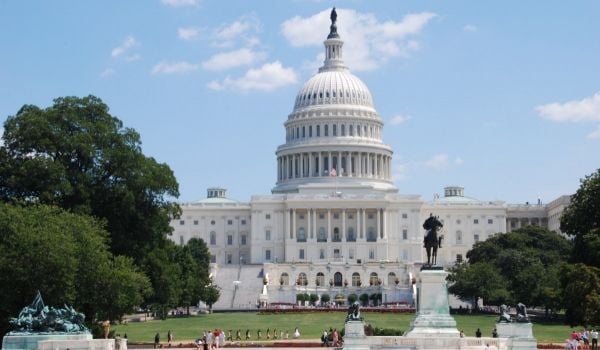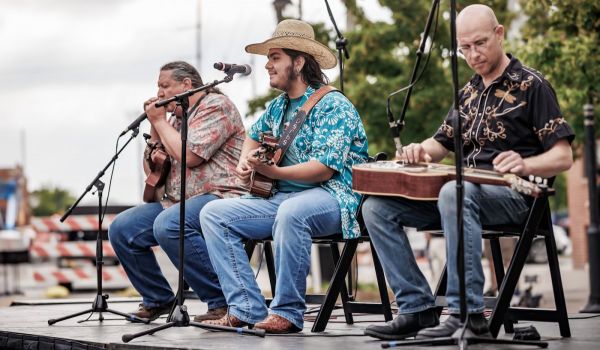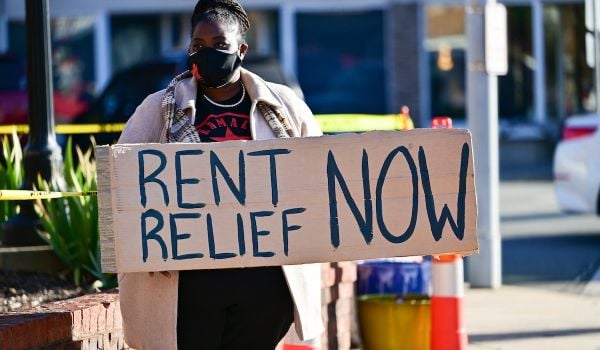Welcome to The Weekly Wrap, our Friday round-up of stories that explain the problems oppressing people in cities and elevate the solutions bringing us closer to economic, environmental and social justice.
We’re accepting applications for our 16th annual Vanguard conference, which is taking place in Lexington, Kentucky this fall. Early bird applications are accepted until April 1st, with the final deadline set for May 6th. Learn more and apply here!
Biden Pledges $3.3B “To Right Historic Wrongs” of Highways
Politicians and planners built interstate highways that plowed through many Black, brown, Asian American and Latino communities across the U.S. Construction of these highways displaced more than 475,000 households and more than 1 million people, according to estimates from the U.S. Department of Transportation.
This week, President Biden announced $3.3 billion in infrastructure spending for projects that would reconnect neighborhoods that were torn apart by the federal highway system decades ago, The Guardian reports. The funding originated from the 2021 infrastructure legislation and is being allocated in more than 40 states, according to the outlet.
Portland and Multnomah County Introduce Homeless Plan
Portland Mayor Ted Wheeler and Multnomah County Chair Jessica Vega Pederson released a Draft Homelessness Response Action Plan that would expand shelter beds by 1,000, award $600 million in previously approved funding to new affordable housing, and find 20 commercial buildings to transform into housing. It would also expand property insurance for private landlords and nonprofit landlords to incentivize renting out to more tenants. The plan sets out to reduce the currently unsheltered population of 2,700 by 50% by 2025.
Wheeler was also behind a sweeping, draconian citywide camping ban that a circuit court judge halted in November. A pending Supreme Court decision will likely free up cities to criminalize homelessness even when there is no available shelter. Wheeler took an aggressive stance toward unhoused people who choose not to engage with city services, regardless of their adequacy: “For those who are offered help and do not seek it, I have minimal patience, and perhaps a lack of empathy,” he said, according to Axios.
Tribal-Owned Internet Emerges in California
The Nation reports on Acorn Wireless, a tribally-owned internet service provider in the Hoopa Valley Reservation in California, created through $2 million CARES Act funding. While most Americans get internet from corporate providers whose “regional monopolies enable them to charge exorbitant rates for uneven service” according to The Nation, Acorn is owned and operated by the tribe’s public utilities department. It is one of 50 tribally-owned ISPs across the country.
The Hoopa Valley reservation, the largest Native reservation in California, holds 3,300 people across 140 square miles. But its forests and rocky terrain make it difficult and expensive to furnish with fiber optic wire. According to the Nation, internet access in reservations across the country is 21% lower than in neighboring non-tribal lands.
Governor Healey to Pardon Marijuana Convictions
On Wednesday, Massachusetts Governor Maura Healey announced a plan to seek blanket pardons for people convicted of marijuana possession, a move that Healey’s office claimed could impact hundreds of thousands of people. Healey’s office said the pardons would apply to “all adult Massachusetts state court convictions” as well as misdemeanor convictions that occurred prior to March 13, 2024. The state legalized marijuana back in 2016 through a ballot measure, which Healey’s office opposed at the time according to the Boston Globe. There were 68,000 marijuana violations between 2000 and 2013, according to a 2019 report. Healey’s office said she was calling on other governors to make similar blanket pardons.
D.C. Starts Process of Eventually Regulating App-Based Worker Pay, Maybe
A D.C. law passed this week will lead to a report on the conditions of app-based delivery workers in the city, according to Smart Cities Dive. It is intended to be the first step toward regulating the pay of delivery workers in the city. In New York City, a similar process resulted in a $17.96 hourly wage for delivery drivers. (The recently passed D.C. law doesn’t state outright that regulations must be produced, unlike the New York law.) A DoorDash spokesperson told Smart Cities Dive that they disagreed with New York City’s methodology, a sign of pushback to come from the app companies’ lobbyists.
Curated by Deonna Anderson
MORE NEWS
-
Voters in Los Angeles passed Measure HLA last week. It requires the city to implement safety improvements including bike lanes and the redesign of sidewalks and intersections every time it paves a street. Governing
-
Ohlone people and their allies celebrate the return of sacred native land in what is now called Berkeley. KQED
-
Philadelphia’s Chinatown Stitch Project, which will cap two-and-a-half blocks of the Vine Street Expressway, received a $158 million federal grant. WPIV
-
A $10 million federal taxpayer credit will be used to finance “Cop City” in Atlanta. The Chronicle of Philanthropy
RESOURCES & OPPORTUNITIES
-
How can Indigenous innovators in the US and Canada build upon traditional knowledge and technology to meet the social, environmental, and economic goals of their communities? That’s the question being asked for MIT Solve’s 2024 Indigenous Communities Fellowship, which is accepting applications until April 18 at 12 p.m. Eastern. Learn more here.
-
Next City partnered with Common Future to showcase our coverage of the banking system, which shines a light on innovative solutions that have been built despite the challenges of existing in our current extractive systems. Click here to access our new Banking for the People ebook.
EVENTS
-
March 21 at 5 p.m. Eastern: Next City is partnering with fellow media organization Reckon for a powerful conversation examining the ongoing struggles for a safe environment in Black communities. Register here.
-
March 27 at 1 p.m. Eastern: Los Angeles is running the biggest Universal Basic Mobility program in the nation. Join this Next City webinar to learn how cities and transit agencies can launch their own UBM programs to increase economic opportunity and mobility for underserved communities. Register here.
This article is part of The Weekly Wrap, a newsletter rounding up stories that explain the problems oppressing people in cities and elevate the solutions bringing us closer to economic, environmental and social justice. Click here to subscribe to The Weekly Wrap newsletter.

Roshan Abraham is Next City's housing correspondent and a former Equitable Cities fellow. He is based in Queens. Follow him on Twitter at @roshantone.



















Add to the Discussion
Next City sustaining members can comment on our stories. Keep the discussion going! Join our community of engaged members by donating today.
Already a sustaining member? Login here.